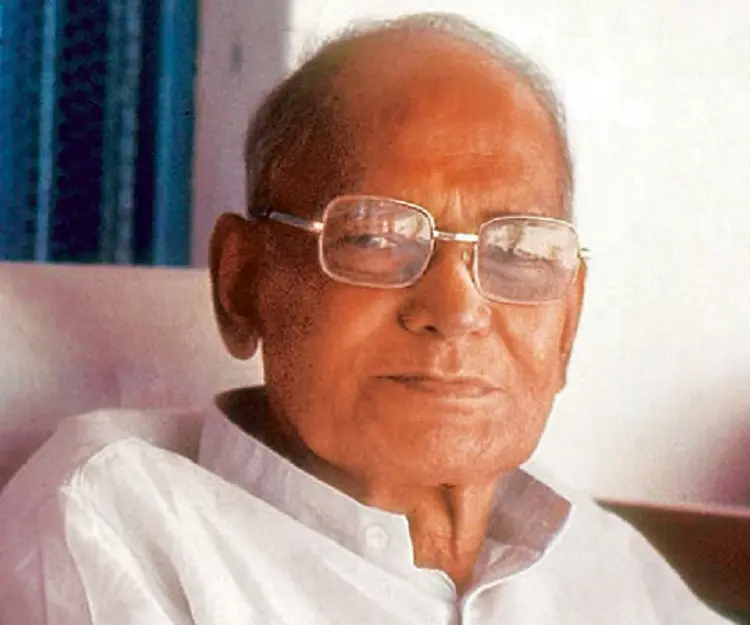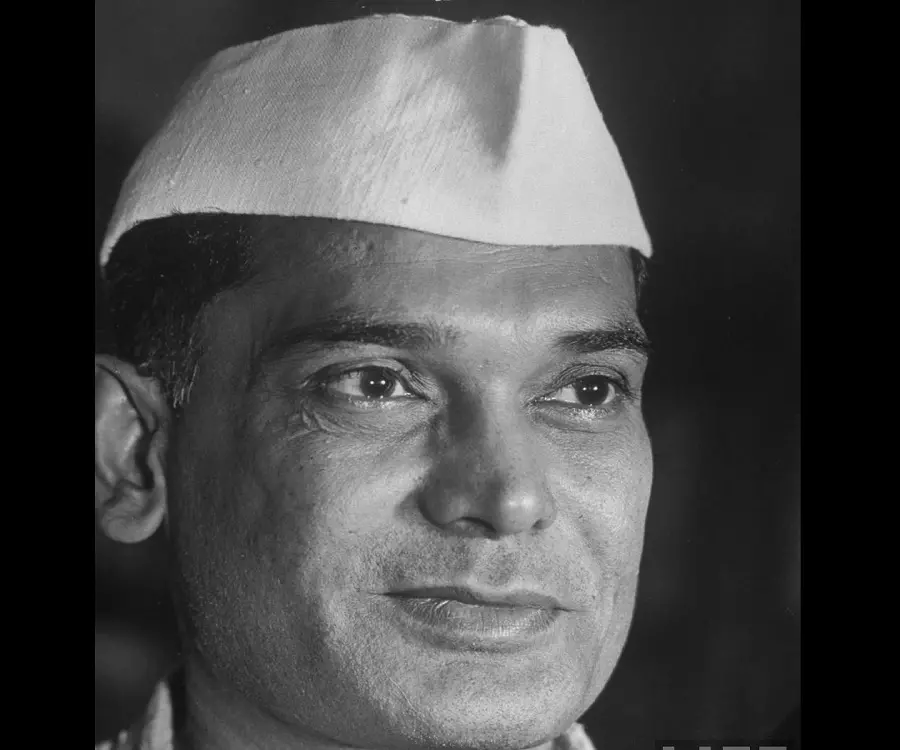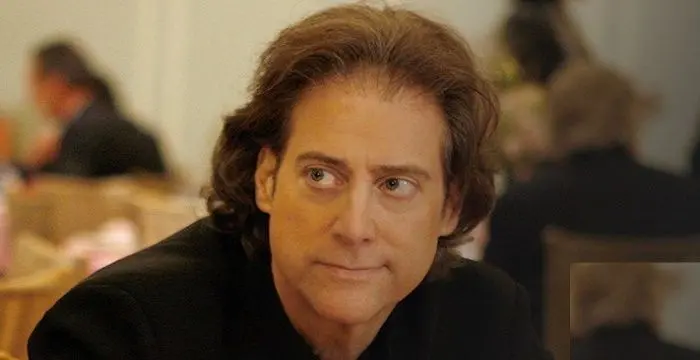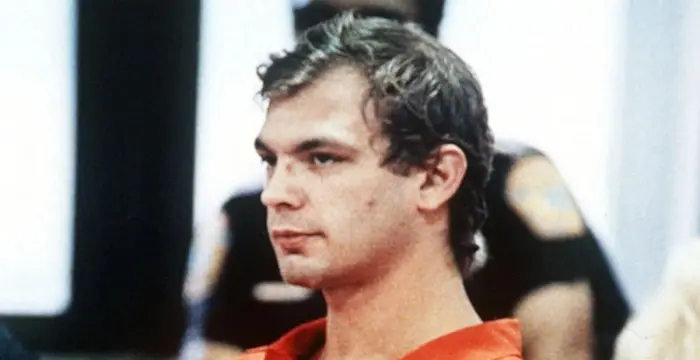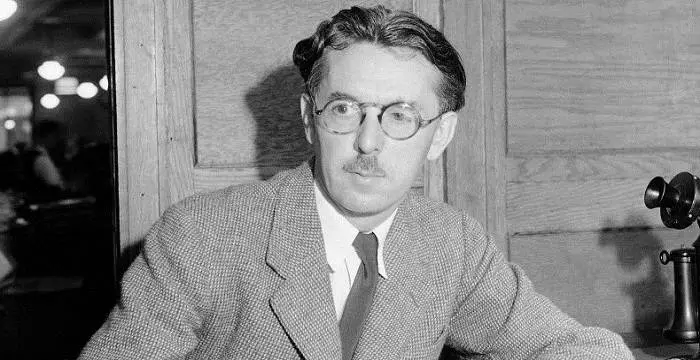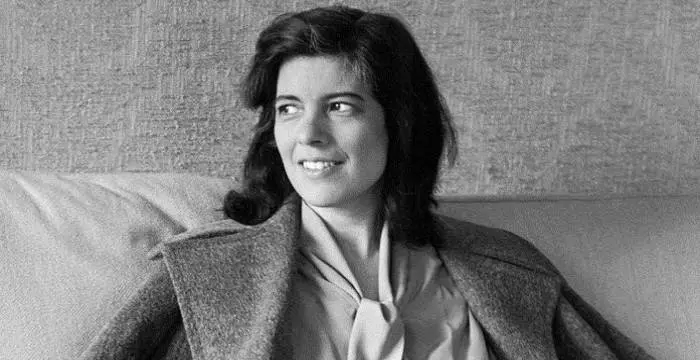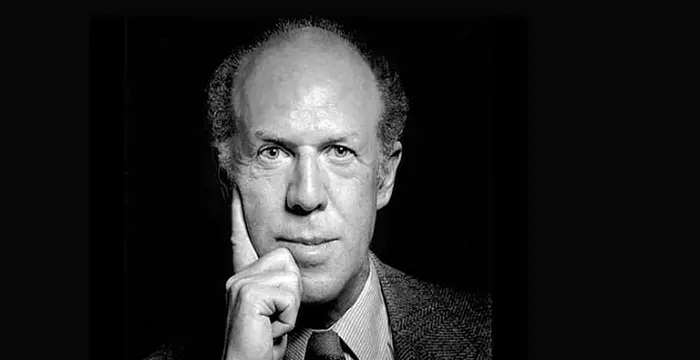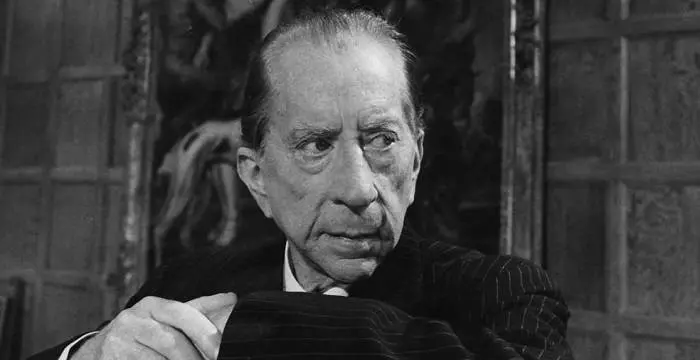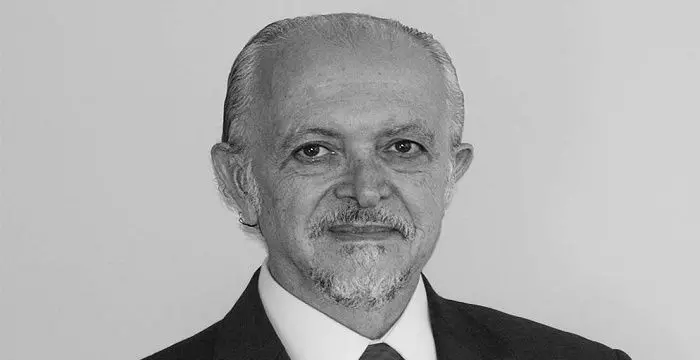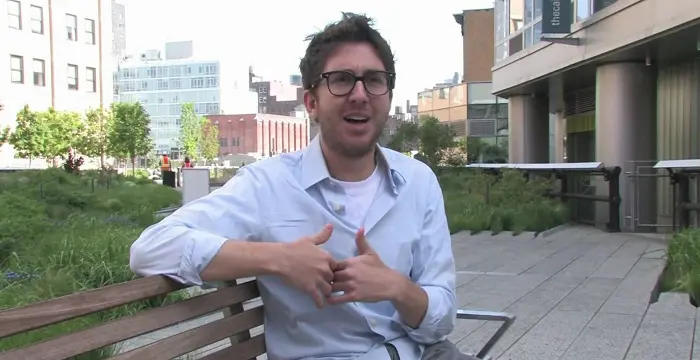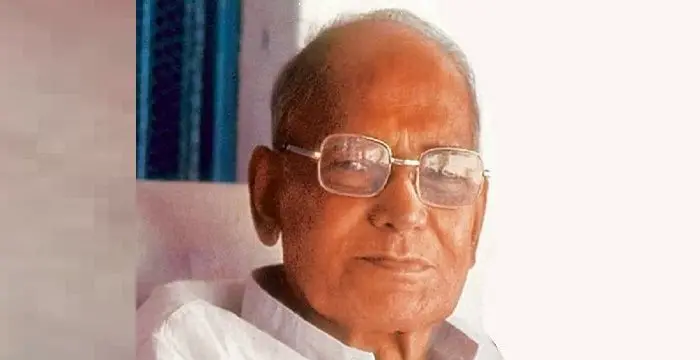
Jayaprakash Narayan - Ohio State University, Birthday and Childhood
Jayaprakash Narayan's Personal Details
Jayaprakash Narayan was an Indian independence activist and political leader
| Information | Detail |
|---|---|
| Birthday | October 11, 1902 |
| Died on | October 8, 1979 |
| Nationality | Indian |
| Famous | Ohio State University, University Of California, Berkeley, Leaders, Political Leaders |
| Spouses | Prabhavati Devi |
| Known as | JP Narayan, Jayaprakash, Lok Nayak |
| Universities |
|
| Notable Alumnis |
|
| Founder / Co-Founder |
|
| Birth Place | Saran district |
| Religion | Hinduism |
| Gender | Male |
| Father | Harsu Dayal Srivastava |
| Mother | Phul Rani Devi |
| Sun Sign | Libra |
| Born in | Saran district |
| Famous as | Political Leaders |
| Died at Age | 76 |
// Famous Leaders
Edi Rama
Edi Rama is the current Prime Minister of Albania. Check out this biography to know about his childhood, life, achievements, works & timeline.
Tecumseh
Tecumseh was a Native American leader of the Shawnee clan. This biography profiles his childhood, life and timeline.
Khalifa bin Zayed Al Nahyan
Sheikh Khalifa bin Zayed Al Nahyan is the current President of the United Arab Emirates (UAE). Check out this biography to know about his birthday, childhood, family life, achievements and fun facts about him.
Jayaprakash Narayan's photo
Who is Jayaprakash Narayan?
Jayaprakash Narayan was an Indian independence activist and political leader. Popularly referred to as JP or Lok Nayak (“The People's Hero”), he actively participated in the civil disobedience movement against British rule in India for which he was imprisoned. Born in Bihar in British India, he grew up reading about the courage and valor of Indian kings which greatly inspired his young mind. A brilliant student, he moved to the United States for his higher studies. His Struggles to make ends meet in a foreign land made him realize the difficulties faced by the working class. After being introduced to Karl Marx's ‘Das Kapital’, he became convinced that Marxism was the way to alleviate the suffering of the masses. He evolved into a staunch Marxist and upon his return to India he joined the Indian National Congress on the invitation of Jawaharlal Nehru. He zealously participated in India’s struggle for freedom and remained a prominent figure in Indian politics following the country’s independence in 1947 and scaled new heights of popularity during the 1960s. In the 1970s he played a pivotal role in the popular people's movement known as the Bihar Movement despite his advancing age. He was posthumously awarded the Bharat Ratna in 1999.
// Famous Political Leaders
Edi Rama
Edi Rama is the current Prime Minister of Albania. Check out this biography to know about his childhood, life, achievements, works & timeline.
Khalifa bin Zayed Al Nahyan
Sheikh Khalifa bin Zayed Al Nahyan is the current President of the United Arab Emirates (UAE). Check out this biography to know about his birthday, childhood, family life, achievements and fun facts about him.
Leo Varadkar
Cam Leo Varadkar is the current Taoiseach—the Prime Minister—of the Republic of Ireland. Check out this biography to know about his childhood, family life, achievements and other facts about his life.
Childhood & Early Life
Jayaprakash Narayan was born on 11 October 1902 in a village in Saran district of Bihar, British India, into a Hindu Kayastha family as the fourth child of Harsu Dayal Srivastava and Phul Rani Devi. His father was a junior official in the Canal Department of the State government.
He studied at the collegiate school at Patna where he developed a reading habit. Along with magazines like ‘Saraswati’, ‘Prabha’ and ‘Pratap’, he also read the ‘Bhagwad Gita’. A brilliant student, he excelled in his studies and completed school in 1918. He won a District merit scholarship to Patna College.
For his higher studies, he moved to the United States in 1922. He did several odd jobs to pay for his education there and these experiences made him aware about the difficulties faced by the working class.
He initially enrolled at Berkeley and later transferred to The University of Iowa when fees at Berkeley weas doubled. He was again forced to transfer to many other universities.
Despite the difficulties he faced in the U.S., he managed to study his favorite subject, sociology, and received some valuable guidance from Professor Edward Ross. During this time he was introduced to Karl Marx’s works which influenced him greatly.
He became an avowed Marxist and delved deeply into books by Indian intellectual and Communist theoretician M. N. Roy. He also read the works of Lenin, Trotsky, Plekhanov and Rosa Luxemburg.
Later Years
Jayaprakash Narayan returned to India in 1929. Impressed by his ideals, Jawaharlal Nehru invited him to join the Indian National Congress which he accepted. Mahatma Gandhi was also impressed by the young man and took him under his wings, becoming his mentor.
He became very active in the surging Indian independence movement. He participated in the civil disobedience against British rule and was arrested and imprisoned in 1932. During his imprisonment he met Ram Manohar Lohia, Minoo Masani, Achyut Patwardhan, Ashok Mehta, Yusuf Desai and other national leaders, which strengthened his nationalist fervor.
After his release, he played a major role in the founding of the Congress Socialist Party, a left-wing group within the Congress Party, and was made its General Secretary.
He intensified his role in the Indian freedom struggle and was imprisoned by the British again in 1939 for his opposition to Indian participation in World War II on the side of Britain. A daring soul, he made good his escape in a dramatic way.
In 1942, Mahatma Gandhi launched the Quit India Movement. During this time Narayan along with the likes of Suraj Narayan Singh, Gulab Chand Gupta, and Ramnandan Mishra planned to start an underground movement for freedom. However Narayan was recaptured by the British in 1943.
He was finally released in 1946. By this time he had grown so passionate about the freedom struggle that he tried to persuade the Congress leaders to adopt a more violent approach against the British.
India eventually gained independence in 1947. Along with several other socialists, he left the Congress Party in 1948. A few years later he played a major role in forming the Praja Socialist Party in 1952.
Before long he became tired of the party politics and decided to dedicate his life to the Bhoodan Yajna Movement, founded by Vinoba Bhave. However, his interest in politics was re-ignited in the late 1950s and once again he became active in political activities.
He gained much prominence as a politician in the late 1960s. After the nation suffered high inflation and unemployment among other problems in 1974, the Nav Nirman Andolan movement of Gujarat asked Jayaprakash to lead a peaceful agitation.
In his seventies at the time, he led a silent procession at Patna. The procession was lathi charged but nothing could deter the patriot’s spirit. He addressed a large crowd at Gandhi Maidan on 5 June 1974 and called for a total revolution. These events culminated in the popular people's movement known as the Bihar Movement.
A severe critic of the undemocratic government of Prime Minister Indira Gandhi, he collaborated with V. M. Tarkunde to found the NGOs the Citizens for Democracy in 1974 and the People's Union for Civil Liberties in 1976 with the aim of upholding and defending civil liberties.
Major Works
Jayaprakash Narayan led the Bihar Movement which was initiated by students in Bihar in 1974 in protest against the corruption in the government of Bihar. Also called Total Revolution Movement and JP Movement, it later turned against Prime Minister Indira Gandhi's government at the centre and became a satyagraha of sorts.
Awards & Achievements
In 1965 he was presented with the Ramon Magsaysay Award for public service.
He was posthumously honored with the Bharat Ratna, India's highest civilian award, in 1999 in recognition of his social work.
Personal Life & Legacy
Jayaprakash Narayan married Prabhavati Devi in 1920. His wife, just 14 years old at the time of marriage, evolved to become a prominent freedom fighter and Gandhian in her own right. Prabhavati was very independent and moved to Gandhi's ashram when Narayan went to the U.S. for his higher studies.
He suffered from kidney failure, diabetes and heart ailments during his later years and died on 8 October 1979.
// Famous Ohio State University
Richard Lewis
Richard Lewis is an American comedian. This biography provides detailed information on his childhood, life, career, work, achievements and timeline.
Jeffrey Dahmer
Jeffrey Lionel Dahmer was an American was a serial killer and a sex offender. This biography of Dahmer profiles his childhood, life, criminal and sexual offences and timeline.
James Thurber
James Thurber was an American author, journalist and cartoonist, famously known for his short stories and cartoons in ‘The New Yorker’ magazine. This biography offers detailed information on his childhood, life, achievements and timeline.
Jayaprakash Narayan's awards
| Year | Name | Award |
|---|---|---|
Other | ||
| 0 | 1999 - Bharat Ratna | |
| 0 | 1965 - Ramon Magsaysay Award for Public Service | |
Jayaprakash Narayan biography timelines
- // 11th Oct 1902Jayaprakash Narayan was born on 11 October 1902 in a village in Saran district of Bihar, British India, into a Hindu Kayastha family as the fourth child of Harsu Dayal Srivastava and Phul Rani Devi. His father was a junior official in the Canal Department of the State government.
- // 1918He studied at the collegiate school at Patna where he developed a reading habit. Along with magazines like ‘Saraswati’, ‘Prabha’ and ‘Pratap’, he also read the ‘Bhagwad Gita’. A brilliant student, he excelled in his studies and completed school in 1918. He won a District merit scholarship to Patna College.
- // 1920Jayaprakash Narayan married Prabhavati Devi in 1920. His wife, just 14 years old at the time of marriage, evolved to become a prominent freedom fighter and Gandhian in her own right. Prabhavati was very independent and moved to Gandhi's ashram when Narayan went to the U.S. for his higher studies.
- // 1922For his higher studies, he moved to the United States in 1922. He did several odd jobs to pay for his education there and these experiences made him aware about the difficulties faced by the working class.
- // 1929Jayaprakash Narayan returned to India in 1929. Impressed by his ideals, Jawaharlal Nehru invited him to join the Indian National Congress which he accepted. Mahatma Gandhi was also impressed by the young man and took him under his wings, becoming his mentor.
- // 1932He became very active in the surging Indian independence movement. He participated in the civil disobedience against British rule and was arrested and imprisoned in 1932. During his imprisonment he met Ram Manohar Lohia, Minoo Masani, Achyut Patwardhan, Ashok Mehta, Yusuf Desai and other national leaders, which strengthened his nationalist fervor.
- // 1939He intensified his role in the Indian freedom struggle and was imprisoned by the British again in 1939 for his opposition to Indian participation in World War II on the side of Britain. A daring soul, he made good his escape in a dramatic way.
- // 1942 To 1943In 1942, Mahatma Gandhi launched the Quit India Movement. During this time Narayan along with the likes of Suraj Narayan Singh, Gulab Chand Gupta, and Ramnandan Mishra planned to start an underground movement for freedom. However Narayan was recaptured by the British in 1943.
- // 1946He was finally released in 1946. By this time he had grown so passionate about the freedom struggle that he tried to persuade the Congress leaders to adopt a more violent approach against the British.
- // 1965In 1965 he was presented with the Ramon Magsaysay Award for public service.
- // 1974He gained much prominence as a politician in the late 1960s. After the nation suffered high inflation and unemployment among other problems in 1974, the Nav Nirman Andolan movement of Gujarat asked Jayaprakash to lead a peaceful agitation.
- // 1974 To 1976A severe critic of the undemocratic government of Prime Minister Indira Gandhi, he collaborated with V. M. Tarkunde to found the NGOs the Citizens for Democracy in 1974 and the People's Union for Civil Liberties in 1976 with the aim of upholding and defending civil liberties.
- // 1974Jayaprakash Narayan led the Bihar Movement which was initiated by students in Bihar in 1974 in protest against the corruption in the government of Bihar. Also called Total Revolution Movement and JP Movement, it later turned against Prime Minister Indira Gandhi's government at the centre and became a satyagraha of sorts.
- // 5th Jun 1974In his seventies at the time, he led a silent procession at Patna. The procession was lathi charged but nothing could deter the patriot’s spirit. He addressed a large crowd at Gandhi Maidan on 5 June 1974 and called for a total revolution. These events culminated in the popular people's movement known as the Bihar Movement.
- // 8th Oct 1979He suffered from kidney failure, diabetes and heart ailments during his later years and died on 8 October 1979.
- // 1999He was posthumously honored with the Bharat Ratna, India's highest civilian award, in 1999 in recognition of his social work.
// Famous University Of California, Berkeley
Susan Sontag
Susan Sontag is an American critical essayist, cultural analyst, novelist, political activist, filmmaker and playwright of international repute. Read on to find out more about her childhood, career, profile and timeline.
Gerard Debreu
Gerard Debreu was a French-born American economist who brought mathematical precision to economics. Check out this biography to know about his childhood, family life, achievements and other facts related to his life.
J. Paul Getty
J. Paul Getty was an American billionaire businessman and president of the Getty Oil Company. This biography offers detailed information about his childhood, life, career and timeline.
Mario J. Molina
Mario Molina is a Nobel Prize winning chemist from Mexico who co-developed the theory of ozone depletion due to CFCs. To know more about his childhood, career, profile and timeline read on.
Amir Blumenfeld
Amir Shmuel Blumenfeld is an American actor, script writer and comedian of Jewish origin. This biography profiles his childhood, family, career, personal life, achievements and gives some fun facts.
Vicki Iovine
Vicki Iovine is an American author, model, and lawyer. Check out this biography to know about her childhood, family life, achievements and fun facts about her.
Jayaprakash Narayan's FAQ
What is Jayaprakash Narayan birthday?
Jayaprakash Narayan was born at 1902-10-11
When was Jayaprakash Narayan died?
Jayaprakash Narayan was died at 1979-10-08
Where was Jayaprakash Narayan died?
Jayaprakash Narayan was died in Patna
Which age was Jayaprakash Narayan died?
Jayaprakash Narayan was died at age 76
Where is Jayaprakash Narayan's birth place?
Jayaprakash Narayan was born in Saran district
What is Jayaprakash Narayan nationalities?
Jayaprakash Narayan's nationalities is Indian
Who is Jayaprakash Narayan spouses?
Jayaprakash Narayan's spouses is Prabhavati Devi
What was Jayaprakash Narayan universities?
Jayaprakash Narayan studied at Ohio State University,University Of California, Berkeley, Ohio State University, University of Wisconsin-Madison, University of California, Berkeley
What was Jayaprakash Narayan notable alumnis?
Jayaprakash Narayan's notable alumnis is Ohio State University, University Of California, Berkeley
Which company or organization was founded by Jayaprakash Narayan?
Jayaprakash Narayan was the founder/co-founder of Congress Socialist Party, People's Union for Civil Liberties, Janata Party, Socialist Party, Praja Socialist Party
What is Jayaprakash Narayan's religion?
Jayaprakash Narayan's religion is Hinduism
Who is Jayaprakash Narayan's father?
Jayaprakash Narayan's father is Harsu Dayal Srivastava
Who is Jayaprakash Narayan's mother?
Jayaprakash Narayan's mother is Phul Rani Devi
What is Jayaprakash Narayan's sun sign?
Jayaprakash Narayan is Libra
How famous is Jayaprakash Narayan?
Jayaprakash Narayan is famouse as Political Leaders



